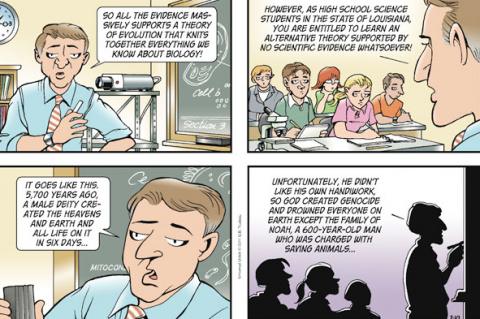Iran had a rich tradition of filmmaking before the Revolution of 1979, when the fundamentalists burned cinemas and shut down productions. But, by the late 80s, the clerics warmed up to cinema again and a filmmaking renaissance got underway. Then, in 1997, the whole world took notice when Abbas Kiarostami won the Palme d’Or at the Cannes Film Festival for Taste of Cherry. Nowadays, Iranian films show up regularly at film festivals worldwide.
Getting inside the vibrant Iranian film scene hasn’t been terribly easy, especially for Americans. Blame that on politics. But last year, the folks behind the Vice Guide to Film traveled to Tehran and put together a reportage on Iranian cinema past and present. It runs 23 minutes and overturns a few stereotypes along the way. Definitely worth a watch.
Note: According to our Twitter friends, the film should be viewable around the world. We only encountered one exception — Canada. So we offer our apologies in advance to Canadian viewers. You can find us on Twitter here.
Related Content:
North Korea’s Cinema of Dreams
 Garry Trudeau
Garry Trudeau 
